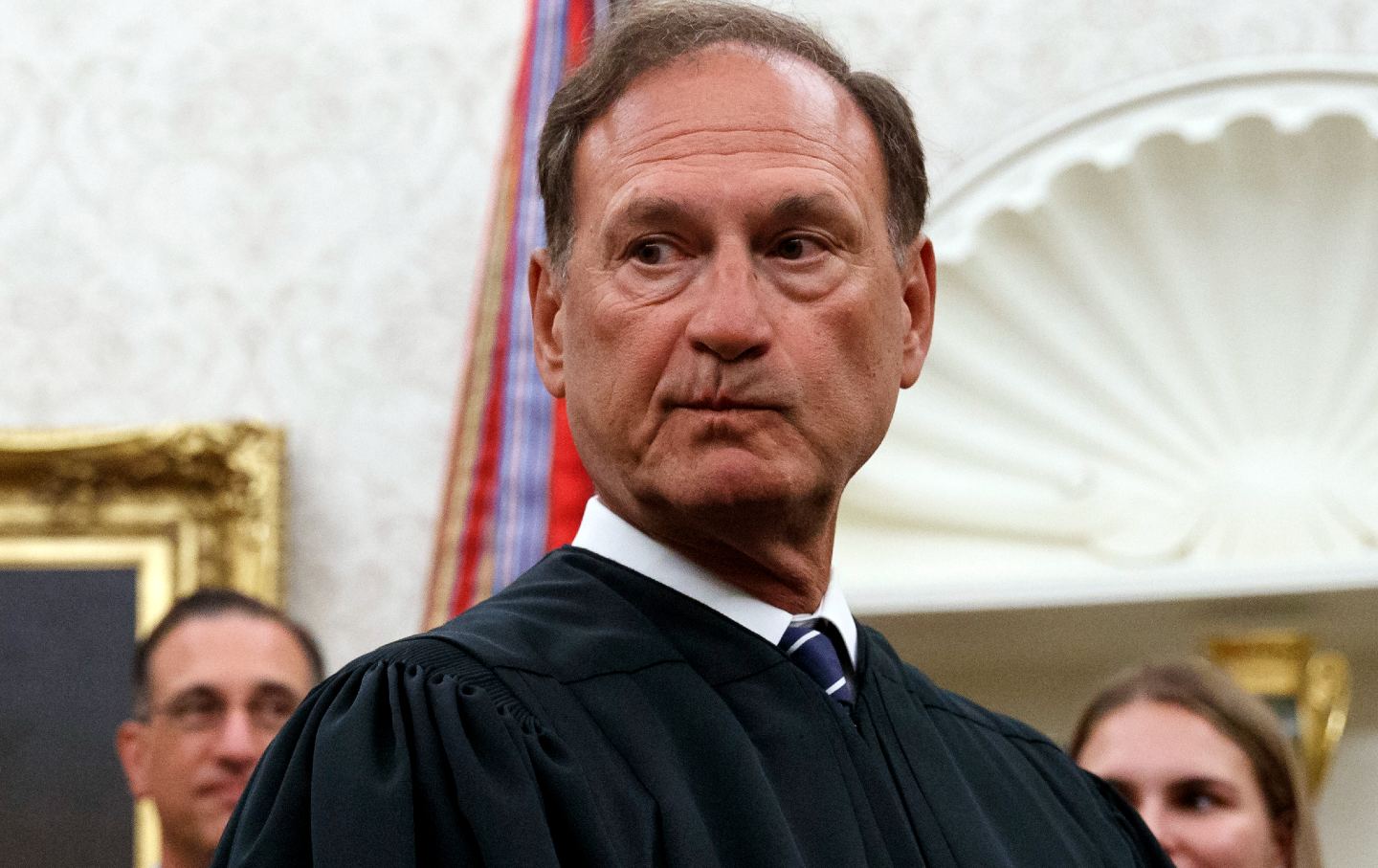In a majority opinion rubber-stamping South Carolina’s racist congressional map, Alito made it effectively impossible to contest racial gerrymanders.

Supreme Court Justice Samuel Alito
(Carolyn Kaster / AP Photo)
On Thursday, MAGA’s chief justice and amateur vexillophile Samuel Alito once again used his unchecked power on the Supreme Court to help Republicans win elections. In so doing, he moved the country a little closer to his ultimate goal of reading the Reconstruction amendments right out of the Constitution.
He did this through a case called Alexander v. South Carolina State Conference of the NAACP. At issue was South Carolina’s racist congressional map—and more specifically, the way the South Carolina Republican legislature had redrawn the contours of the state’s District 1.
District 1 is currently represented by Republican Congresswoman Nancy Mace. It’s historically been a safe district for Republicans, but in 2018 a Democrat, Joe Cunningham took the seat with just 50.6 percent of the vote. (Twenty eighteen was a weird election, not just because it was the “blue wave” year, but also because the seat had previously belonged to Republican Mark Sanford, who was embroiled in a sex scandal.) In 2020, Nancy Mace narrowly defeated Cunningham to retake the seat for Republicans, but by the same razor thin margin. To avoid these kinds of close scrapes in the future, Republicans redrew the district after the 2020 census, and Mace won reelection with 56.4 percent of the vote in 2022.
The way South Carolina redrew the map, however, was racist. Republicans accomplished the goal of protecting Mace by systematically removing Black voters from her district. The new map splits the city of Charleston, South Carolina, in two, and takes most of the Black voters who live there out of District 1 and puts them in District 6 (which is currently represented by Representative Jim Clyburn and is the only one of the state’s seven districts currently held by a Democrat).
I’m not the only person who thinks removing a bunch of Black voters from a district to make it safer for a white Republican Congresswoman is racist and therefore unconstitutional. A three-judge district court panel in South Carolina ruled that District 1 was a racial gerrymander and ordered South Carolina to redraw its maps.
The South Carolina legislature refused, however, and appealed the district court’s ruling. That appeal was heard by the Supreme Court all the way back in October of 2023. It was literally one of the first cases the court heard in this term. But the court waited until yesterday, seven-and-a-half months after hearing oral arguments, to issue its ruling determining which maps South Carolina can use in the upcoming congressional election. That is significant because, while the Supreme Court was dragging its feet on this case, the South Carolina district court withdrew its order, saying that there was no longer enough time for the legislature to redraw the map even if the legislature lost its appeal. The Supreme Court locked in South Carolina’s racist gerrymander, simply by doing nothing.
Thursday’s opinion rubber-stamping South Carolina’s racism was therefore not really about South Carolina; it was about preventing future challenges to racist maps. Alito accomplished this by effectively making it impossible for Black people to prove that the Fourteenth Amendment’s Equal Protection Clause has been violated when our voting rights are taken away through racist gerrymandering. He did this by ruling that state legislatures must be presumed to be acting in good faith; he then left nearly no avenue for people to challenge the racist handiwork of these legislatures.
It’s a wild presumption, given that the Fourteenth Amendment and its Equal Protection Clause were writ




















































